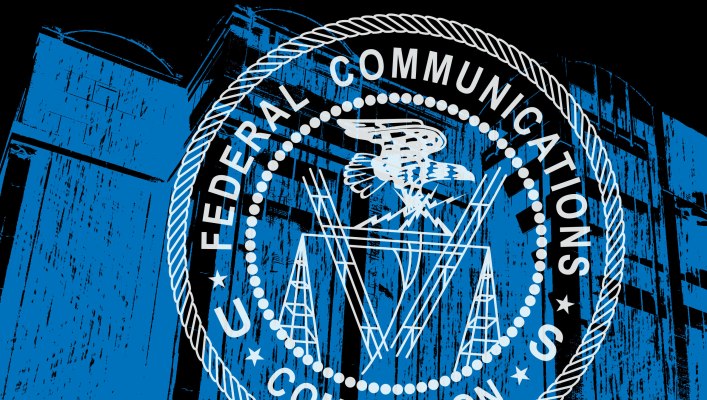Update: Turns out I’m just plain wrong on this one. Requiring both fixed and mobile broadband access to consider a person adequately served is what the FCC determined it should do last year in the last report of this type under the previous Chairman, Tom Wheeler. So while it is a good idea, it isn’t a new one. That said, the new FCC is treating it as if it were not the established standard and is openly attempting to undermine it by suggesting a much more lax method of accounting. So although I got my history wrong, my recommendation remains to comment in support of the existing, logical requirement that the FCC require “advanced telecommunications” to comprise both fixed and mobile connections.
There’s an FCC proposal that everyone is up in arms about, but it’s not net neutrality. Or the privacy thing. Or prison calling reform. Or any of the other things. This one proposes equating mobile and fixed broadband for the purposes of tracking the health of internet access in America. That’s a bad idea for several reasons — but there’s a good one hiding right next to it.
The proposal is part of an annual report on broadband deployment for which the FCC is responsible. They and others use this data to inform where to invest in infrastructure, where to send federal aid and so on. Naturally, as the broadband landscape evolves, the report must evolve with it.
And it is in this spirit that the FCC asks if it should focus its inquiry on “whether some form of advanced telecommunications capability, be it fixed or mobile, is being deployed to all Americans in a reasonable and timely fashion.” (Emphasis theirs.)
Now, others have already objected to this, including Commissioner Clyburn (“I am extremely skeptical of this line of inquiry.”) — and a group of Senators who also asked that the comment deadline on this Notice of Inquiry be pushed back. It was, and you now have until September 21st to add your voice to the pile. (Instructions at the bottom of the post.)
But while you could simply object to the idea that mobile and fixed broadband are interchangeable, you might instead consider supporting the FCC’s other proposal, which few have mentioned.
The question the FCC must address every year is “whether advanced telecommunications capability is being deployed to all Americans in a reasonable and timely fashion.”
In the paragraph after the one in question, the FCC suggests as an alternative that instead of counting just fixed broadband as what’s needed to satisfy the condition, or allowing mobile to do so, they could require both:
Alternatively, we seek comment on whether we should evaluate the deployment based on the presence of both fixed and mobile services. As noted elsewhere in this Inquiry, mobile and fixed broadband have different technical characteristics and limitations, and broadband providers choose to market their fixed and mobile products in different ways. This is consistent with the approach that the Commission has generally taken in the universal service context, by adopting programs to subsidize fixed and mobile broadband independent of one another.
In other words, in order to be considered as being provided adequate broadband capabilities by the FCC’s standards, you would need to have both fixed broadband and mobile data service meeting the basic requirements.
This is a great idea. Few people use only one or the other, because both are very necessary to everyday life and work in different ways. But you can’t take your gigabit home connection with you to the store or on the road, so it’s not sufficient on its own.
And data caps, forced app usage, tethering restrictions, fewer protections available for your data and so on mean mobile-only is similarly unsuitable for an only connection. That some people do it is likely more indicative of cost and reliance on other infrastructure (libraries, schools, etc.) than that mobile is an adequate replacement for fixed.
So if neither on its own is sufficient any more and they are unlikely to become so, why not get out in front of this and require both?
This would also prevent the system from being gamed, which would be simple under the other system: imagine someplace where an inner city district has poor fixed broadband availability and companies don’t want to spend the money to upgrade it. Pop a few LTE antennas in there and all of a sudden the whole district is blanketed in “broadband” by the FCC’s definition, even though people still have DSL at home and can’t watch Netflix because it’ll go over their mobile data caps (because it’s not included in the zero-rating scheme). Not ideal!
By requiring both we could ensure that communities that are being left behind one way or the other get the attention they need. It’s the FCC’s own idea, so if we support it we may actually bring it about instead of simply blocking the other proposal.
You can leave a comment on the FCC’s Notice of Inquiry by going here and hitting the “express filing” link on the left. It’s docket 17-199 if that link doesn’t work and you have to search for it. Be sure to use your real name and email, as incomplete or fraudulent filings are often used as an excuse not to pay attention to bona fide ones.
